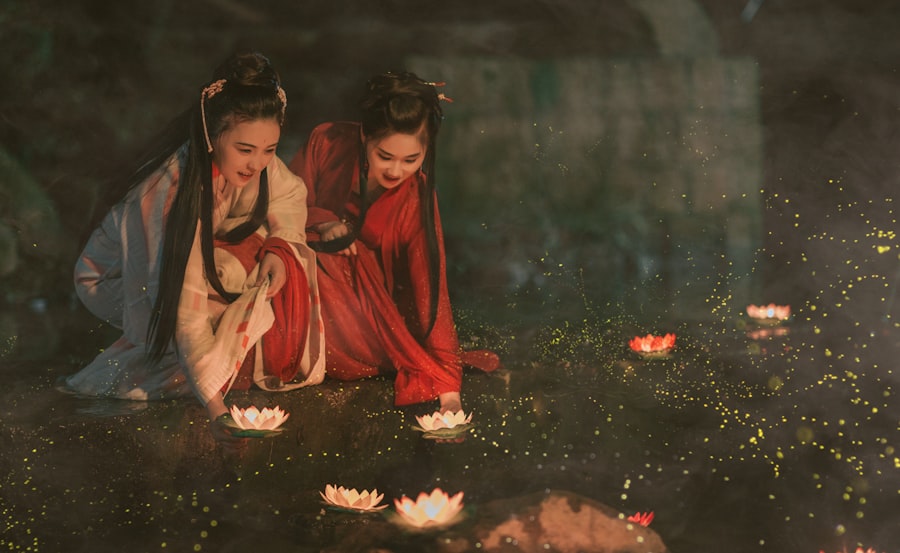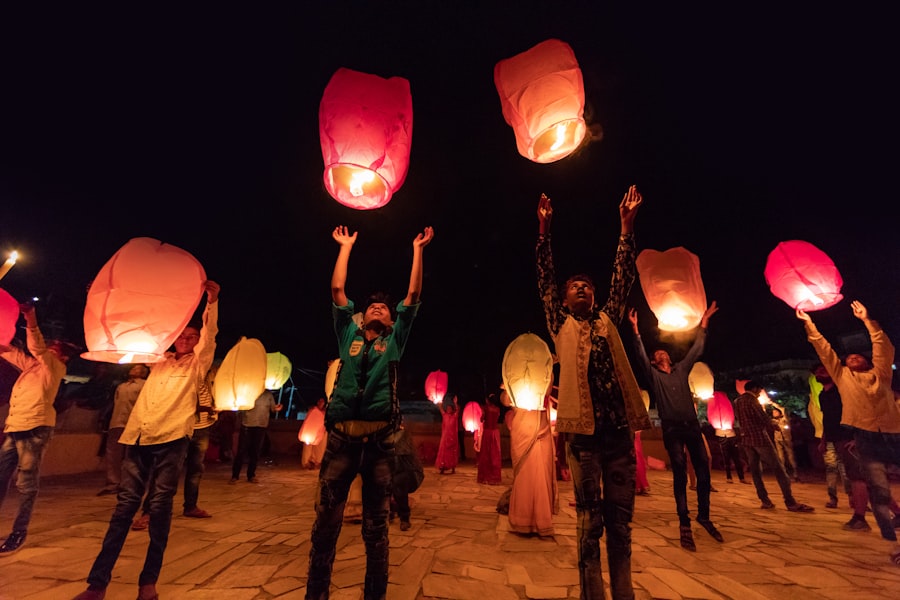The Year of the Horse holds a prominent place in Chinese culture, symbolising strength, freedom, and vitality. In the Chinese zodiac, which consists of twelve animals, the Horse is the seventh sign, and its influence is deeply woven into the fabric of Chinese society. Those born in the Year of the Horse are often regarded as energetic, intelligent, and capable individuals who thrive on independence.
This year is not merely a time marker; it embodies a spirit of adventure and a zest for life that resonates with many. In traditional Chinese beliefs, each zodiac sign is associated with specific traits and characteristics that can influence the fortunes of individuals born under that sign. The Horse is particularly revered for its qualities of perseverance and determination.
As you reflect on the significance of the Year of the Horse, you may find that it encourages a sense of ambition and a desire to pursue one’s goals with fervour. This year is often seen as an auspicious time for new beginnings, making it an ideal period for setting personal and professional aspirations.
Summary
- The Year of the Horse is significant in Chinese culture as it symbolises strength, energy, and success.
- Traditional customs and celebrations during Chinese New Year include family reunions, giving red envelopes, and setting off fireworks.
- The zodiac sign of the Horse is associated with characteristics such as independence, hard work, and a love for freedom.
- Festive food and decorations for Chinese New Year often include dumplings, fish, and red lanterns to symbolise prosperity and good luck.
- Chinese New Year celebrations have a global impact, with parades, fireworks, and cultural events taking place in cities around the world.
Traditional customs and celebrations during Chinese New Year
Chinese New Year, also known as the Spring Festival, is a time of joyous celebration marked by a plethora of traditional customs. As you prepare to welcome the new year, you may find yourself engaging in various activities that have been passed down through generations. One of the most significant customs is the reunion dinner held on New Year’s Eve, where families gather to share a lavish meal.
This gathering not only strengthens familial bonds but also serves as a moment to reflect on the past year and express hopes for the future. Another cherished tradition is the practice of giving red envelopes, known as “hongbao,” filled with money to children and younger family members. This gesture is believed to bring good luck and prosperity in the coming year.
As you partake in these customs, you may notice how they foster a sense of community and togetherness. The vibrant atmosphere during this time is further enhanced by dragon and lion dances, fireworks, and various cultural performances that fill the streets with colour and excitement.
The zodiac sign of the Horse and its characteristics

The zodiac sign of the Horse is often associated with a range of dynamic characteristics that reflect its spirited nature. Individuals born under this sign are typically seen as enthusiastic and sociable, possessing an innate ability to connect with others.
Their natural charisma tends to draw people in, making them popular figures in social settings. Moreover, Horses are known for their strong sense of independence.
They value their freedom and often resist constraints that may hinder their personal growth. This desire for autonomy can lead them to pursue careers or hobbies that allow for self-expression and exploration. As you consider the traits associated with the Horse, you might recognise these qualities in yourself or those around you, inspiring you to embrace your own adventurous spirit and seek out opportunities that align with your passions.
Festive food and decorations for Chinese New Year
| Category | Metrics |
|---|---|
| Food | Traditional dishes, such as dumplings, fish, and rice cakes |
| Decorations | Red lanterns, couplets, and paper cuttings |
| Spending | Increased spending on festive food and decorations during Chinese New Year |
Food plays a central role in Chinese New Year celebrations, with each dish carrying symbolic meanings that reflect wishes for prosperity, health, and happiness. As you gather with family and friends during this festive season, you may find yourself indulging in traditional dishes such as dumplings, fish, and rice cakes. Dumplings, shaped like ancient gold ingots, are believed to bring wealth, while fish represents abundance and surplus.
The act of sharing these meals fosters a sense of unity and gratitude among loved ones. In addition to food, decorations are an essential aspect of Chinese New Year festivities. You might notice homes adorned with red lanterns, couplets inscribed with auspicious phrases, and paper cuttings depicting various symbols of good fortune.
The colour red is particularly significant, as it is thought to ward off evil spirits and bring good luck. As you immerse yourself in these vibrant decorations, you may feel a renewed sense of hope and positivity for the year ahead.
The global impact of Chinese New Year celebrations
Chinese New Year has transcended its cultural origins to become a global phenomenon celebrated by millions around the world. As you observe the festivities in various countries, you may be struck by how different cultures have embraced this occasion while infusing their unique traditions into the celebrations. Cities such as London, San Francisco, and Sydney host grand parades featuring lion dances, fireworks, and cultural performances that attract diverse audiences eager to partake in the festivities.
The global impact of Chinese New Year celebrations extends beyond mere entertainment; it fosters cross-cultural understanding and appreciation. You might find that participating in these events allows you to connect with people from different backgrounds while celebrating shared values of family, community, and renewal. This cultural exchange enriches your understanding of global traditions and highlights the importance of unity in diversity.
New Year traditions and superstitions for good luck in the Year of the Horse

As you embark on the journey through the Year of the Horse, you may encounter various traditions and superstitions aimed at attracting good luck and warding off misfortune. One common practice involves cleaning your home before the new year begins. This ritual is believed to sweep away any negative energy from the previous year, making way for fresh opportunities and positive vibes.
You might find yourself decluttering your space as a symbolic gesture of renewal. Another superstition revolves around the foods consumed during this time. For instance, eating long noodles signifies longevity, while tangerines are associated with wealth and good fortune.
You may also want to avoid certain activities during this period; for example, sweeping or cleaning on New Year’s Day is thought to sweep away good luck. By embracing these traditions and superstitions, you can cultivate an atmosphere of positivity and hope as you navigate through the Year of the Horse. In conclusion, the Year of the Horse is a time rich with cultural significance, traditional customs, and vibrant celebrations that resonate deeply within Chinese society and beyond.
As you engage with these practices—whether through festive meals, decorations, or community events—you contribute to a legacy that celebrates resilience, ambition, and unity. Embracing these traditions not only enriches your own experience but also fosters connections with others as you collectively welcome a new year filled with promise and potential.
In 2014, Chinese New Year was celebrated with great enthusiasm and excitement. The Year of the Horse brought about a sense of adventure and progress for many. According to a thought-provoking article, the symbolism of Godzilla in modern society reflects themes of anarchism and capitalism. This clash of ideologies is reminiscent of the clash of titans discussed in another intriguing article. For those looking to get creative during the festive season, a step-by-step guide on how to make a Godzilla craft can be found in news/step-by-step-guide-how-to-make-godzilla-in-infinite-craft/’>this informative piece.
FAQs
What is Chinese New Year 2014?
Chinese New Year 2014, also known as the Spring Festival, is the most important traditional festival in China. It marks the beginning of the lunar new year and is celebrated with various customs and traditions.
When is Chinese New Year 2014?
Chinese New Year 2014 falls on January 31st according to the lunar calendar. The festival lasts for 15 days, with the Lantern Festival marking the end of the celebrations on the 15th day.
What are the traditions and customs associated with Chinese New Year 2014?
During Chinese New Year 2014, people clean their homes to sweep away bad luck and make way for good luck. They also decorate their homes with red lanterns and couplets, and set off fireworks to ward off evil spirits. Families gather for reunion dinners and give red envelopes containing money to children for good luck.
What are the zodiac animals for Chinese New Year 2014?
Chinese New Year 2014 is the Year of the Horse according to the Chinese zodiac. People born in the Year of the Horse are believed to be energetic, intelligent, and have a strong sense of independence.
How is Chinese New Year 2014 celebrated around the world?
Chinese New Year 2014 is celebrated by Chinese communities around the world, with parades, dragon and lion dances, and other cultural performances. Many cities host festive events and markets to mark the occasion.
